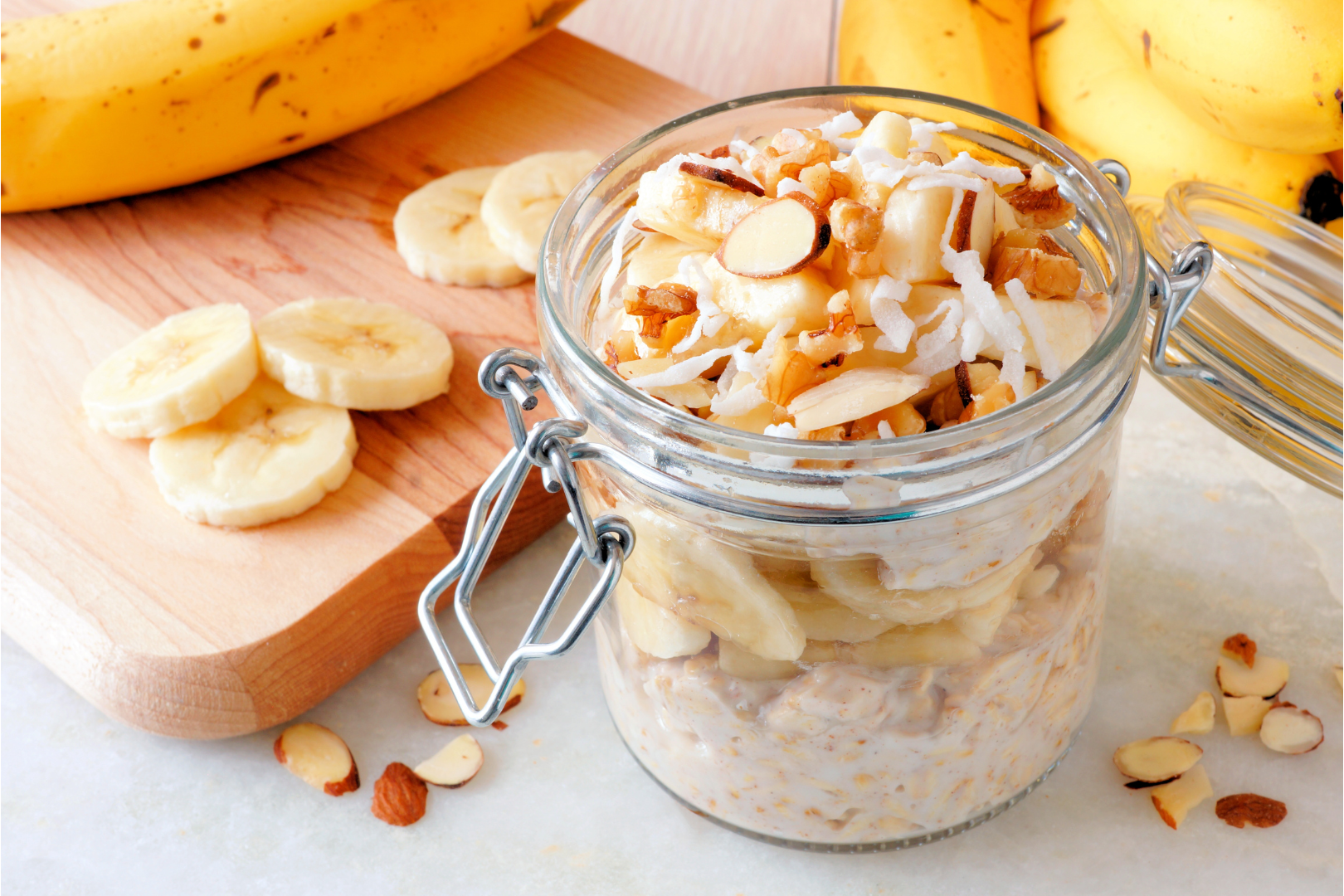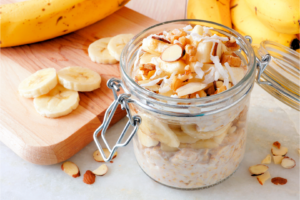
Author :
Eunice Adu- Tutu, Dietetic Practicum Student. Reviewed by Dahlia Abou El Hassan, MScFn, RD, Food Services Registered Dietitian.
Breakfast
As students, eating breakfast regularly is a crucial part of our health and daily activities. Eating breakfast provides our body with essential nutrients, which offers many benefits to our overall physical and mental well-being. Skipping breakfast deprives us of the proper nutrients required to energize our body and support brain function. Without breakfast most of us feel irritable, fatigued, lacking concentration and unproductive throughout the day, which affects students' academic performance. Additionally, omitting breakfast can result in an increased risk of cardiovascular diseases and chronic health conditions.
While eating breakfast in general invigorates our bodies, it is essential to prioritize eating a high-quality breakfast more often to reduce the risk of developing chronic diseases. A 2013 research study published in the Journal of Nutrition reported that those who consistently eat a healthy breakfast have a lower risk of weight gain and developing Type 2 diabetes. The proven benefits of having breakfast provide compelling reasons for students to start their day with a healthy, balanced meal.
Consuming a well-balanced breakfast helps to stimulate our metabolism by working to convert the food into energy at optimal speed. Boosting our metabolism means our body will be able to burn calories more efficiently throughout the day. This is why it is important for students to eat a nutritious breakfast daily to provide them with energy to study, concentrate in class and engage in physical activities.
What Should a Well-Balanced Breakfast Look Like?
A balanced breakfast should consist of various nutrient-rich foods, including protein, fruits and vegetables, healthy fats, and whole grains, preferably with a high amount of fibre. The Canadian Food Guide recommends filling half of our plate with fruits and vegetables, a quarter with whole grain options, and the remaining quarter with protein or alternative sources.
Add more variety to your breakfast menu by incorporating different nutrient sources:
- Protein: Greek yogurt, nuts, chia seeds, cheese, canned beans, eggs etc.
- Carbohydrate: oatmeal, whole grain bread, bran flakes and cereal, roasted potatoes etc.
- Fats: avocado slices, almonds, sunflower seeds, hemp hearts, olive oil etc.
- Fruits/ vegetables: kale, spinach, apple, orange, banana, berries etc.
Tips on Breakfast Ideas to Make at Home or Purchase on Campus
Starting your day with a nutritiously-balanced breakfast is an excellent way for students to optimize their health and academic performance. Luckily, there are plenty of simple yet delicious and healthy breakfast options available to try at home or on campus. Let's take a look at some of the breakfast ideas:

HASSLE FREE BREAKFAST - try making overnight oats. Mix some oats, nuts or seeds, milk of your choice, and fruit of your choice the night before and refrigerate it overnight. These overnight oats are a terrific way to boost your fiber and protein intake.

FLEXIBLE BREAKFAST - try making a Spinach and Tomato Frittata. It is an easily customizable protein-packed breakfast option that allows you to add any vegetables and cheese of your choice. The egg yolk also provides a good source of Vitamin D to your diet.

ON-THE-GO BREAKFAST - York University has a wide selection of food places around campus that offer a variety of healthy breakfast choices:
- Qoola Fresh, located at York Lanes, serves reasonably-priced healthy breakfast options, including their quinoa breakfast bowl, grilled bistro wraps, and avocado toast with egg or salmon.
- La prep, also in York Lanes, opens as early as 7:30 am on weekdays and offers affordable yet healthy breakfast wraps like their Spartan wrap and avocado toast.
- Central Square, offers breakfast sandwiches, made with a multigrain bagel, eggs, and cheddar cheese, and are a must-try. You can also include a side of fresh fruit or a fruit cup to your meal for a healthy and refreshing addition.
- The Stong, Winters, and Glendon Marche dining halls offer a well-rounded vegetarian breakfast menu for students. Each location serves a scrumptious breakfast sandwich, consisting of hummus, tofu, and tomato. Additionally, they serve a variety of breakfast options such as the sunrise breakfast bagel, vegetarian breakfast wraps, scrambled tofu and tomato, and an omelet made with mushroom cheddar, and tomato.
Resources
- To learn more about the impact on skipping breakfast check out this article and this article
- For information about breakfast and metabolism, read more here.
- Read this article for more information on breakfast and academic performance.
NOTE: the content in this blog is solely for informational purposes and not a substitute for informed medical advice. If you are a student on a York U dining plan consult with the on-campus Registered Dietitian for all nutrition-related inquiries.


